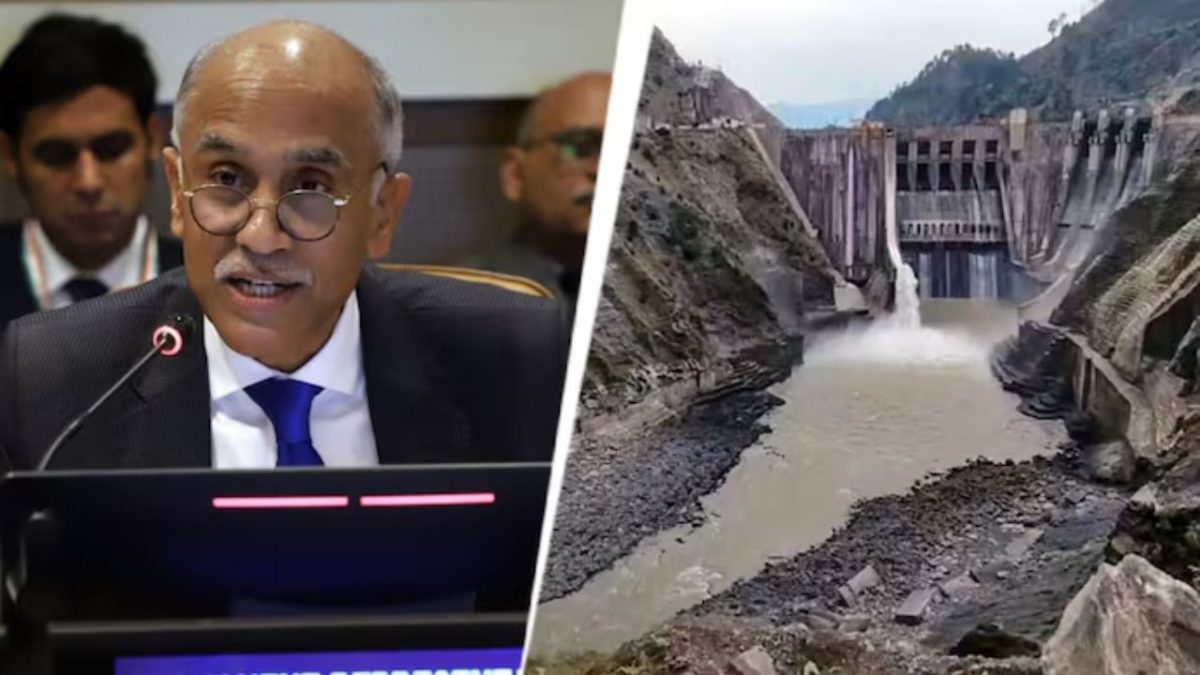India decided to suspend the Indus Waters Treaty with Pakistan after the Pahalgam terrorist attack, which was based on a thorough review of various factors, India explained at the United Nations on Friday (May 23). India clarified that Pakistan, not India, broke the 1960 water-sharing agreement.
Parvathaneni Harish, India’s Permanent Representative to the UN, rejected “disinformation spread by the Pakistani delegation” about the Indus Waters Treaty.
He pointed out that continuous cross-border terrorism, including the recent Pahalgam attack, led to the suspension.
“India entered into the Indus Water Treaty 65 years ago in good faith. The preamble of the treaty describes that the treaty was concluded in a spirit of goodwill and friendship. Throughout the six and a half decades, Pakistan has violated the spirit of the treaty by inflicting three wars and thousands of terror attacks on India. In the last four decades, more than 20,000 Indian lives have been lost in terror attacks, the most recent of which was a dastardly targeted terror attack on tourists in Pahalgam last month,” the envoy told the Security Council.
Harish stressed that even though Pakistan supported terrorism against India, New Delhi showed “extraordinary patience and magnanimity” during this period.
“Pakistan’s state-sponsored cross -border terrorism in India seeks to hold hostage the lives of civilians, religious harmony, and economic prosperity,” he added.
He mentioned that regional security issues, India’s energy needs, and dam safety were other reasons for the decision.
“In these 65 years, far-reaching fundamental changes have taken place, not only in terms of escalating security concerns through cross-border terror attacks, but also growing requirements for producing clean energy, climate change, and demographic change,” he specified.
Impact Shorts
More Shorts“However, Pakistan has continued to block consistently any changes to this infrastructure and any modifications of the provisions which are permissible under the treaty. In fact, in 2012, terrorists even attacked the Tulbul Navigation Project in Jammu and Kashmir. These cynical acts continue to endanger the safety of our projects and the lives of civilians,” he mentioned.
India has also asked Pakistan several times in the past two years to discuss changes to the treaty. However, Pakistan repeatedly refused, preventing India from fully using its rightful share of water.
Given these circumstances, India decided to suspend the treaty until Pakistan, described as a “global center of terror,” stops supporting cross-border terrorism for good.
The Indus Waters Treaty , facilitated by the World Bank and signed on September 19, 1960, allocated the eastern rivers—Ravi, Beas, and Sutlej—to India and the western rivers—Indus, Jhelum, and Chenab—to Pakistan. The treaty allowed India limited, non-consumptive use of the western rivers and is considered one of the most successful international water-sharing agreements.
However, India suspended the treaty on April 23 after a terrorist attack in Jammu and Kashmir’s Baisaran Valley, which it attributed to Pakistan-backed elements. Although both countries agreed to a ceasefire, the suspension of the water treaty remains in effect.
)